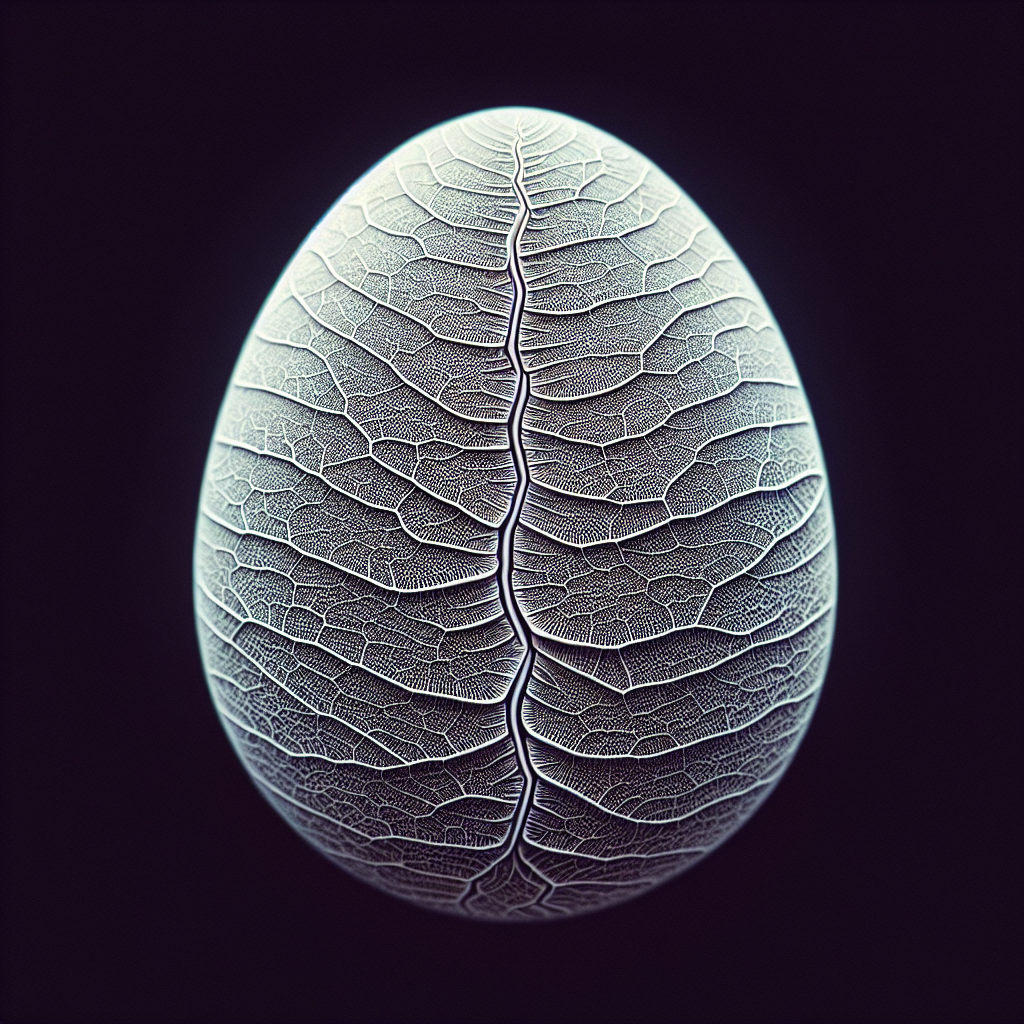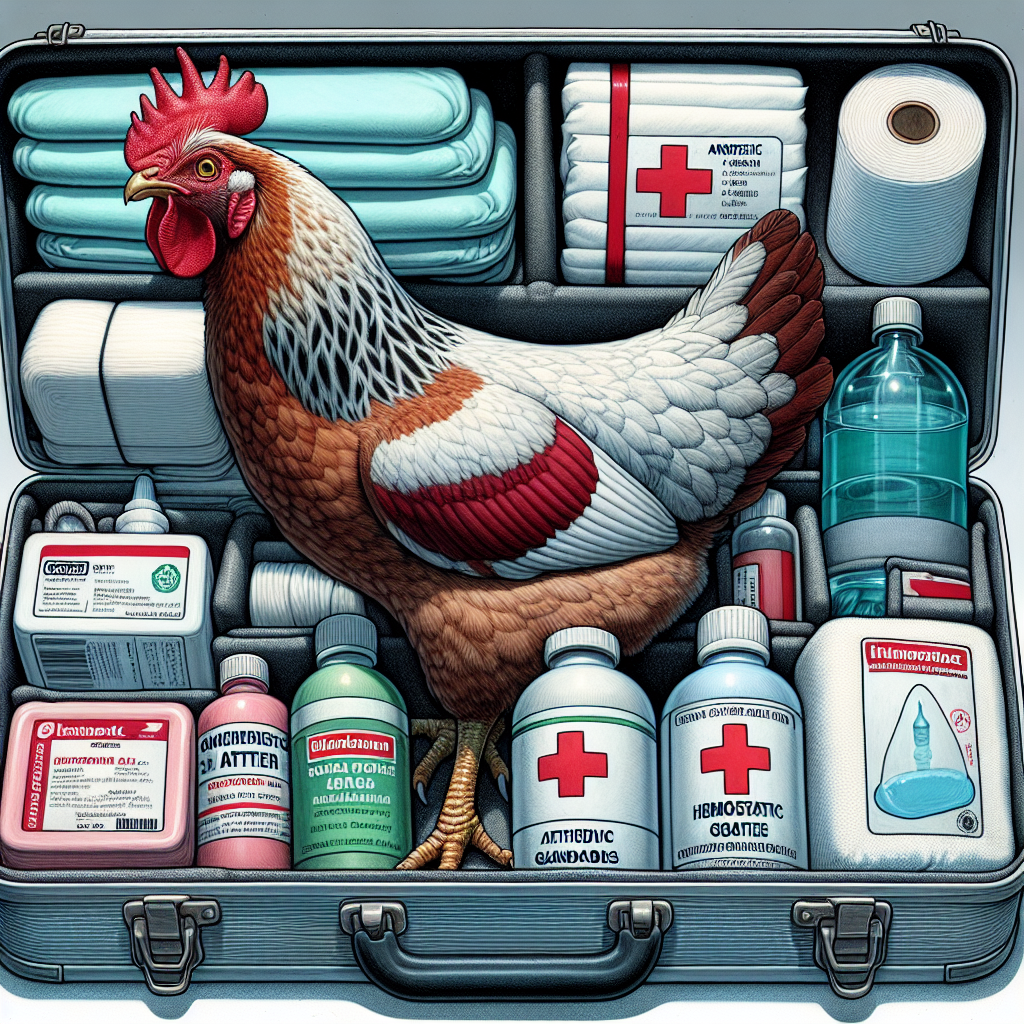In this article, we explore the important role that diet plays in common ailments such as fatty liver disease and egg yolk peritonitis. We will take a closer look at how certain dietary choices can contribute to the development or aggravation of these conditions, allowing you to make informed decisions about your own health and well-being. So, let’s dive in and uncover the impact of diet on these ailments.
Fatty Liver Disease
Fatty liver disease, also known as hepatic steatosis, is a condition characterized by the accumulation of excess fat in the liver. This build-up of fat can lead to inflammation and damage to the liver cells, impairing its normal function. There are two main types of fatty liver disease: alcoholic fatty liver disease, which is caused by excessive alcohol consumption, and non-alcoholic fatty liver disease (NAFLD), which is not related to alcohol consumption.
Definition and Causes
NAFLD, the more common form of fatty liver disease, is strongly associated with lifestyle factors such as diet and physical activity. It occurs when there is an imbalance in the body’s energy intake and expenditure, leading to the accumulation of fat in the liver. Other factors that can contribute to NAFLD include obesity, insulin resistance, metabolic syndrome, and certain medications.
Relationship with Diet
Diet plays a significant role in the development and progression of fatty liver disease. Consuming a diet high in calories, particularly from refined carbohydrates and saturated fats, can contribute to the accumulation of fat in the liver. Added sugars, such as those found in sugary beverages and processed foods, are especially detrimental. Additionally, deficiencies in key nutrients, such as antioxidants and essential fatty acids, can further exacerbate the condition.
Impact of High-Fat Diet
A high-fat diet, particularly one rich in saturated and trans fats, can significantly increase the risk of developing fatty liver disease. These fats are metabolized by the liver and can promote the production of triglycerides, a type of fat that can accumulate in liver cells. The excessive intake of these fats also leads to inflammation and oxidative stress, further damaging liver tissue.
Role of Sugar Consumption
Excessive sugar consumption, especially in the form of added sugars, has been strongly linked to the development of fatty liver disease. When we consume more sugar than our bodies can immediately use for energy, it gets converted into fat and stored in the liver, contributing to fat accumulation. Moreover, excessive sugar intake can disrupt normal insulin function, leading to insulin resistance, a key factor in the progression of NAFLD.
Egg Yolk Peritonitis
Egg yolk peritonitis is a condition that affects the reproductive system of female birds, particularly hens. It occurs when the membrane that surrounds the yolk inside the egg is damaged, causing the yolk to leak into the abdominal cavity instead of being expelled through the cloaca. This abnormal accumulation of yolk in the abdominal cavity can lead to inflammation and infection, resulting in egg yolk peritonitis.
Understanding Egg Yolk Peritonitis
Egg yolk peritonitis is primarily caused by a variety of factors, including reproductive abnormalities, bacterial infections, and nutritional imbalances. When hens experience hormonal imbalances or other issues with their reproductive system, it can lead to the development of egg yolk peritonitis. Additionally, bacterial infections can further exacerbate the condition and contribute to the inflammation and infection in the abdominal cavity.
Dietary Factors Influencing Egg Yolk Quality
The quality of the eggs produced by hens can be influenced by their diet. Providing hens with a well-balanced and nutrient-rich diet, consisting of adequate levels of vitamins, minerals, and proteins, can improve egg quality. Conversely, a diet lacking in essential nutrients can lead to poorer egg quality and increase the risk of egg yolk peritonitis.
Link between Diet and Peritonitis
Although diet alone may not directly cause egg yolk peritonitis, it can contribute to the overall health and well-being of the hen and impact her reproductive system. Nutritional imbalances, particularly deficiencies in key nutrients such as calcium, vitamin D, and omega-3 fatty acids, can weaken the reproductive system and affect the quality of the eggs produced. These diet-related factors can contribute to the development of egg yolk peritonitis in susceptible hens.
Role of Nutritional Imbalances
A diet lacking in essential nutrients, such as inadequate calcium levels or imbalances in omega-3 to omega-6 fatty acids, can disrupt the hormonal balance in hens and negatively impact their reproductive health. For example, insufficient calcium levels can weaken the eggshell, making it more prone to damage and increasing the risk of yolk leakage into the abdominal cavity. Nutritional imbalances can also weaken the immune system, making hens more susceptible to infections that can lead to peritonitis.
Key Nutrients and Dietary Approaches
When it comes to managing and preventing conditions like fatty liver disease and egg yolk peritonitis, a balanced diet that meets all nutritional needs is essential. Here are some key nutrients and dietary approaches that can support liver health and reproductive health in birds:
Antioxidants and Anti-inflammatory Foods
In both fatty liver disease and egg yolk peritonitis, oxidative stress and inflammation play a significant role in the progression of these conditions. Consuming foods rich in antioxidants, such as fruits and vegetables, can help to neutralize harmful free radicals and reduce inflammation in the body. Adding spices like turmeric, ginger, and garlic to your meals can also provide anti-inflammatory benefits.
Essential Fatty Acids
Omega-3 and omega-6 fatty acids are essential for maintaining overall health, including liver function and reproductive health. Including sources of these healthy fats in your diet, such as fatty fish (salmon, mackerel), nuts and seeds (walnuts, flaxseeds), and plant oils (olive oil, avocado oil), can support the body’s natural processes and help prevent or manage these conditions.
Balanced and Nutrient-Rich Diet
A balanced and nutrient-rich diet is crucial for both liver health and reproductive health. This means incorporating a variety of whole foods into your meals, such as lean proteins, whole grains, fruits, vegetables, and dairy or dairy alternatives. It is important to ensure that your diet provides adequate amounts of vitamins, minerals, and other essential nutrients to support optimal functioning of both the liver and the reproductive system.
Importance of Adequate Hydration
Staying adequately hydrated is vital for overall health, including liver and reproductive health. Drinking enough water throughout the day helps to flush out toxins from the body and supports optimal organ function. Make sure to drink plenty of water and hydrating fluids, and limit your intake of sugary beverages and alcohol, which can be detrimental to liver health.
Specific Diets for Fatty Liver Disease
When it comes to managing fatty liver disease, certain dietary approaches have shown promise in improving liver health. Here are four specific diets that have been researched for their potential benefits:
Mediterranean Diet
The Mediterranean diet, which is rich in fruits, vegetables, whole grains, lean proteins, and healthy fats, has been widely studied for its beneficial effects on overall health, including liver health. This eating pattern emphasizes the consumption of plant-based foods, moderate intake of lean proteins (such as fish and poultry), and limited consumption of red meat, processed foods, and added sugars. Studies have shown that following a Mediterranean diet can help reduce liver fat, decrease inflammation, and improve insulin sensitivity.
Plant-Based or Vegetarian Diet
A plant-based or vegetarian diet that focuses on whole, nutrient-dense plant foods can also be beneficial for individuals with fatty liver disease. These diets are naturally lower in saturated and trans fats, which can contribute to liver inflammation and damage. By emphasizing the consumption of fruits, vegetables, whole grains, legumes, nuts, and seeds, individuals can provide their bodies with a variety of beneficial nutrients while reducing the intake of potentially harmful food components.
Low-Carbohydrate or Ketogenic Diet
Low-carbohydrate or ketogenic diets, which are characterized by a high intake of healthy fats, low to moderate intake of proteins, and minimal intake of carbohydrates, have gained popularity in recent years. These diets have shown promise in improving liver health by reducing liver fat, promoting weight loss, and improving insulin sensitivity. However, it is important to note that long-term adherence to such diets may not be suitable for everyone and should be done under the guidance of a healthcare professional.
Importance of Portion Control
Regardless of the specific dietary approach chosen, portion control plays a crucial role in managing fatty liver disease. Consuming excessive amounts of calories, even from healthy foods, can still overburden the liver and contribute to the accumulation of fat. It is important to eat mindfully, listen to your body’s hunger and fullness cues, and practice portion control to maintain a healthy weight and support liver health.
Dietary Recommendations for Egg Yolk Peritonitis
For the prevention and management of egg yolk peritonitis in birds, certain dietary modifications and considerations can be beneficial. Here are four dietary recommendations to support reproductive health in hens:
Low-Calcium Diet
Reducing the dietary levels of calcium can help prevent reproductive issues in hens, including egg yolk peritonitis. A diet that is low in calcium, typically achieved by feeding a diet without access to calcium-rich sources such as oyster shells or limestone, can help regulate the production and quality of eggs, reducing the risk of leakage and subsequent peritonitis.
Limiting Vitamin D Intake
Vitamin D plays a crucial role in calcium absorption and metabolism. However, excessive levels of vitamin D can lead to hypercalcemia, a condition characterized by high levels of calcium in the blood. For hens prone to reproductive issues, it may be necessary to limit their exposure to sunlight or UV light sources, as these can increase vitamin D levels and potentially contribute to the development of egg yolk peritonitis.
Reducing Dietary Fat Content
Dietary fat plays a significant role in the formation and quality of egg yolks. However, excessive fat consumption can increase the risk of reproductive abnormalities in hens, including egg yolk peritonitis. It is important to ensure that the overall fat content in the diet is carefully balanced to support optimal reproductive health while avoiding excessive fat intake.
Focus on High-Quality Protein Sources
Protein is an essential nutrient for hens and plays a critical role in the production of high-quality eggs. Including sources of high-quality protein in their diet, such as lean meats, fish, eggs, and legumes, can support optimal egg quality and reduce the risk of reproductive issues. It is important to provide hens with a balanced diet that meets their protein needs to support overall reproductive health.
Lifestyle Modifications
In addition to dietary changes, certain lifestyle modifications can also have a significant impact on the management and prevention of both fatty liver disease and egg yolk peritonitis.
Regular Physical Activity
Engaging in regular physical activity is crucial for maintaining overall health and supporting optimal liver and reproductive function. Exercise can help reduce liver fat, improve insulin sensitivity, promote weight loss, and enhance cardiovascular health. Aim for at least 150 minutes of moderate-intensity aerobic activity or 75 minutes of vigorous-intensity aerobic activity per week, in addition to muscle-strengthening exercises.
Weight Management Strategies
Maintaining a healthy weight is important for both liver health and reproductive health. For individuals with fatty liver disease, losing weight, if necessary, can help reduce liver fat and improve liver function. Similarly, for hens prone to reproductive issues, maintaining a healthy weight can support optimal egg production and reduce the risk of developing egg yolk peritonitis.
Avoidance of Alcohol and Tobacco
Both alcohol and tobacco can have detrimental effects on liver health and reproductive health. Excessive alcohol consumption can lead to alcoholic fatty liver disease, while tobacco use can increase the risk of fertility issues in both males and females. It is important to avoid or limit the consumption of alcohol and refrain from tobacco use to support overall health and well-being.
Importance of Stress Reduction
Chronic stress can have negative effects on both liver health and reproductive health. Stress can disrupt hormonal balance, impair immune function, and contribute to various health issues. Engaging in stress-reducing activities such as meditation, yoga, deep breathing exercises, or hobbies can help promote relaxation and overall well-being.
Seeking Professional Guidance
While making dietary and lifestyle changes can greatly contribute to the management and prevention of fatty liver disease and egg yolk peritonitis, seeking professional guidance is essential for personalized recommendations and comprehensive care.
Consultation with Healthcare Providers
If you suspect that you may have fatty liver disease or if you are experiencing symptoms such as abdominal pain, fatigue, or changes in appetite and digestion, it is important to consult with a healthcare provider. They can conduct a thorough evaluation, perform necessary tests, and provide an accurate diagnosis and appropriate treatment plan.
Role of Registered Dietitian
A registered dietitian specialized in liver health or avian nutrition can provide invaluable guidance and support in developing a personalized dietary plan to manage fatty liver disease or prevent egg yolk peritonitis. They can assess your specific nutritional needs, help identify areas of improvement in your current diet, and provide practical strategies to ensure you meet your nutritional goals.
Importance of Individualized Approach
Each person and bird is unique, and what works for one may not work for another. It is important to recognize the importance of an individualized approach to managing and preventing these conditions. Working with healthcare professionals and dietitians who can tailor recommendations to your specific needs and circumstances is crucial for optimizing outcomes.
Monitoring and Follow-Up
Regular monitoring and follow-up with healthcare professionals and dietitians are essential for assessing progress, adjusting treatment plans as needed, and addressing any new concerns or challenges that may arise. These professionals can track your liver health indicators, reproductive health markers, and overall well-being to ensure that interventions are effective and provide ongoing support in your journey towards improved health.
In conclusion, diet plays a prominent role in the development and management of fatty liver disease and egg yolk peritonitis. By following a balanced and nutrient-rich diet, incorporating specific dietary approaches, implementing lifestyle modifications, and seeking professional guidance, you can support liver health, promote reproductive health, and improve overall well-being. Remember, small changes can make a big difference, so start making healthier choices today!




